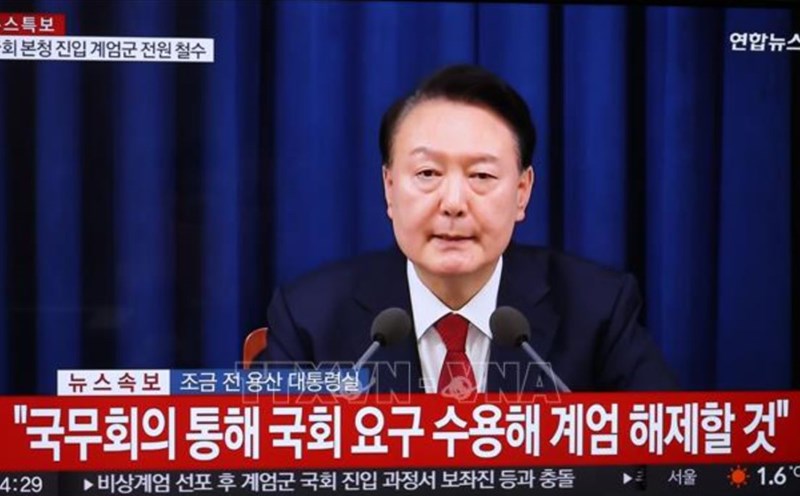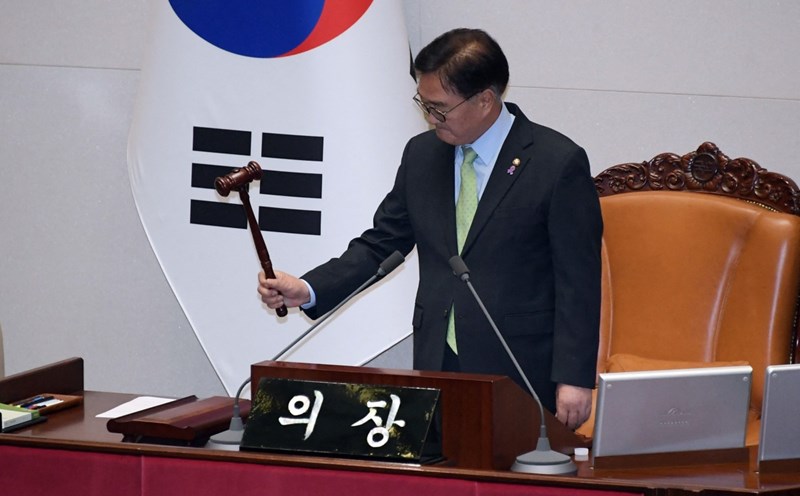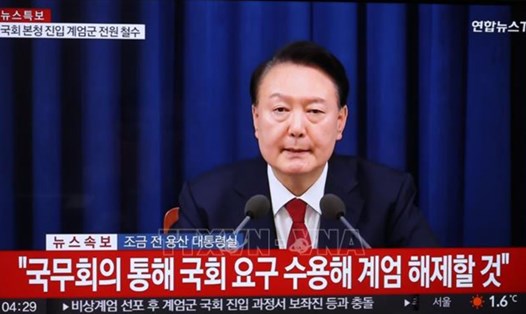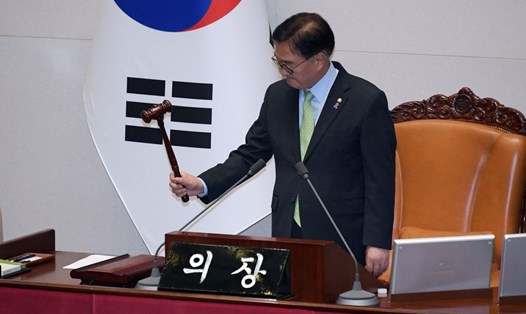South Korea's National Assembly voted on December 7 to approve an opposition-led move to impeach President Yoon Suk-yeol over his failed martial law decree, but most lawmakers from the president's ruling People Power Party (PPP) boycotted the vote, despite large-scale protests outside parliament, Yonhap reported.
The results came hours after President Yoon Suk Yeol publicly apologized for his declaration of martial law, saying he would let the ruling party decide on his term and stabilize state affairs.
PPP lawmakers largely sided with the party to avoid a repeat of the crisis that followed the impeachment of President Park Geun-hye in 2016, which led to a split in the conservative party and a surprise victory for the liberal party in the 2017 presidential election.
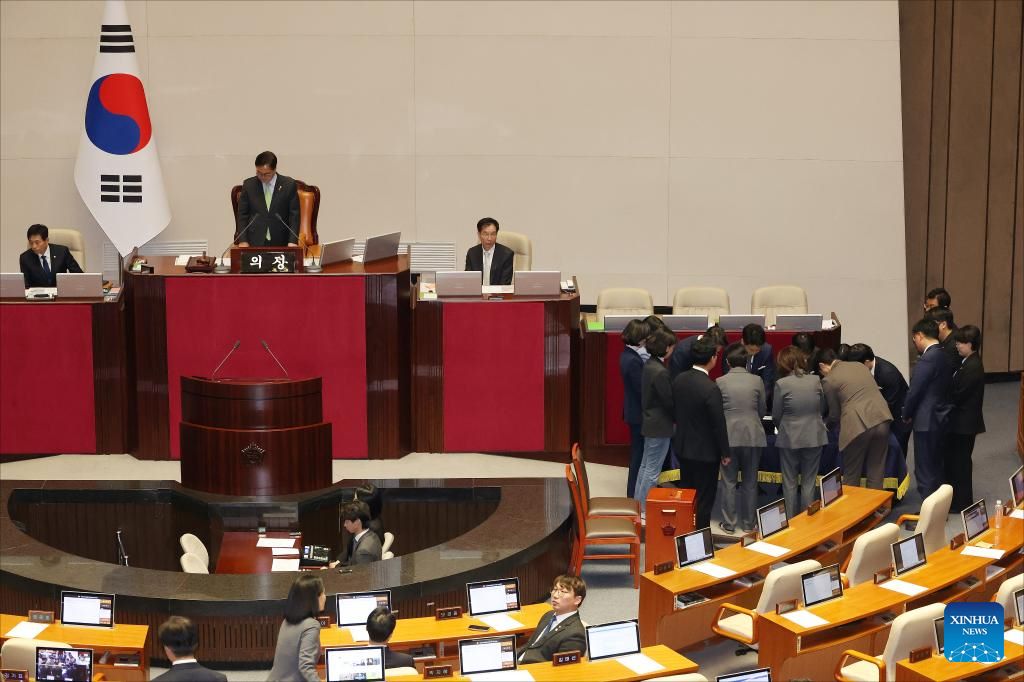
Although President Yoon Suk Yeol avoided impeachment, his failed decision to declare martial law has raised serious questions about his ability to govern in the remaining half of his five-year term.
The embattled president now faces legal risks and renewed efforts to force him from office as the main opposition Democratic Party (DP) said it would refile impeachment proceedings next week.
On December 7, hundreds of thousands of people gathered in front of parliament, demanding the impeachment of the president.
Prosecutors, police and the bureau investigating corruption and high-ranking officials have all opened investigations into President Yoon and senior officials involved in the martial law decree, seeking charges of rebellion and abuse of power, among other crimes.
DP leader Lee Jae-myung accused President Yoon of being the "mastermind behind the rebellion," calling on the government to take the necessary steps to promptly investigate him. Under the law, sedition is an exception to the president's immunity from prosecution.
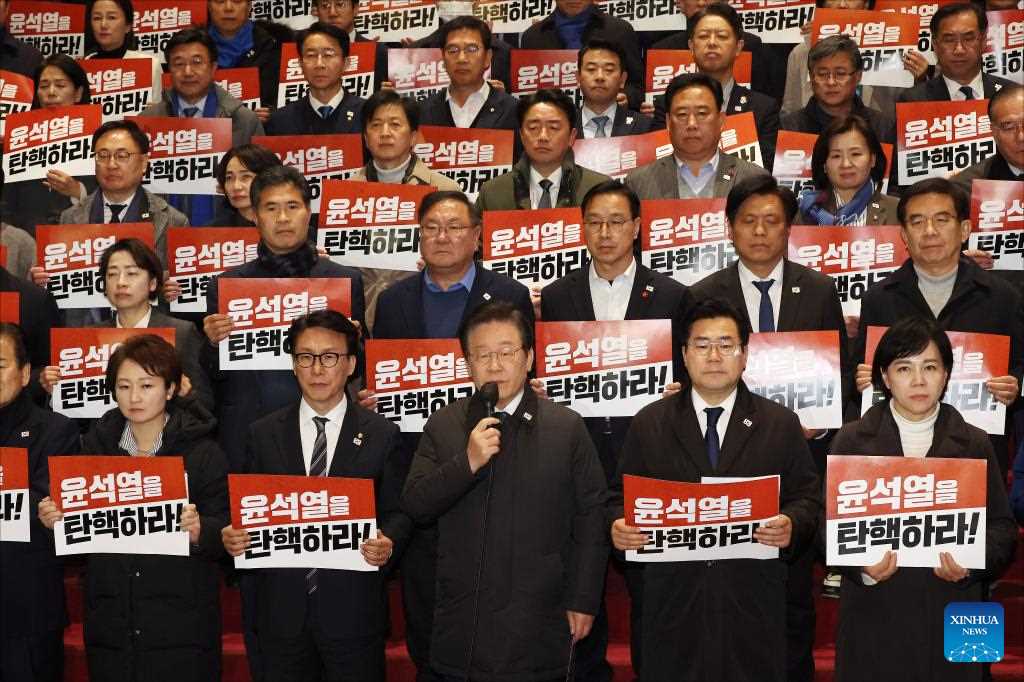
Immediately after President Yoon's speech, PPP leader Han Dong-hoon said Yoon's early resignation was inevitable, adding that the president was no longer able to perform his duties effectively.
The ruling party is expected to consider various measures to stabilize the political situation by loosening President Yoon's power.
Some PPP lawmakers have proposed amending the constitution to shorten Mr. Yoon’s presidential term and shift more power to the prime minister, the government’s No. 2 position, who holds a largely ceremonial role.
Others have called for a coalition government, with cabinet posts shared between rival parties to ensure broader political stability and cooperation in parliament.
The political turmoil comes at a challenging time for South Korea, as it seeks to strengthen its alliance with the United States and other partners to counter growing threats from North Korea.
The turmoil also raises concerns about South Korea's ability to effectively address economic and security woes, especially as former US President Donald Trump returns to the White House next month.
Mr Yoon had planned to meet Mr Trump shortly after his inauguration on January 20, but that prospect now looks uncertain.
In another development, South Korean prosecutors have arrested former Defense Minister Kim Yong-hyun as part of an investigation into alleged treason following martial law.

